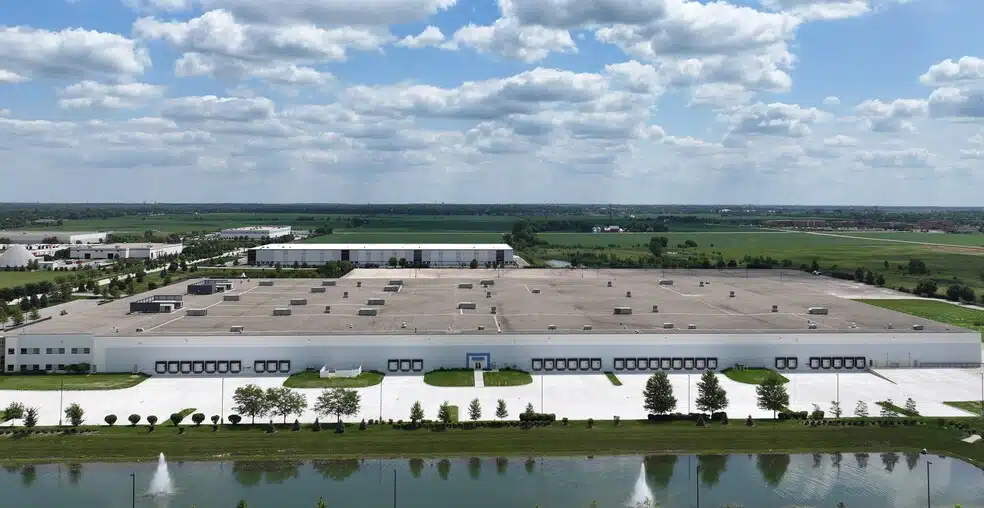Chicagoland Industrial Market Update January 8, 2025
7
Jan
The Chicagoland industrial real estate market remains a critical hub for logistics and warehousing, attracting institutional investors despite shifts in market dynamics. In the last seven days, notable transactions have underscored the region’s resilience and continued strategic importance. Here’s an overview of the most significant deals and their implications for the market.
Major Transactions Chicagoland Industrial Transactions
Ares Management & DRA Advisors Acquire Two Properties for $86M
- Details:
- 2700 Ellis Road, Joliet: A 625,000-square-foot warehouse was acquired for $40 million ($64 per square foot). This property, currently vacant, highlights a slight cooling in valuations compared to its 2017 acquisition price.

- 2200 Sullivan Road, Aurora: A 356,000-square-foot facility was acquired for $46 million ($129 per square foot). Like the Joliet property, this building is available for lease, presenting opportunities for tenant activity.

Credit LoopNet Significance:
- These acquisitions reflect institutional confidence in the long-term value of industrial assets in Chicago’s premier logistics corridors. Both Joliet and Aurora are highly sought-after submarkets due to their proximity to key transportation infrastructure, such as interstates, rail yards, and intermodal facilities.
STAG Industrial Buys Property in McCook for $22.5M
- Details:
- A 220,000-square-foot facility in McCook was acquired by STAG Industrial for $22.5 million. The property is fully leased, ensuring immediate income generation for the buyer.
- Located near I-55, the property caters to tenants requiring quick access to Chicago’s urban core and surrounding suburban markets.
- Significance:
- This deal exemplifies investor demand for stabilized industrial assets in infill locations with strong tenant bases. McCook, a prominent submarket, continues to attract attention due to its established infrastructure and proximity to downtown Chicago.
CBRE Investment Management Sells Portfolio in Elk Grove Village for $47M
- Details:
- A multi-building portfolio in Elk Grove Village, totaling over 400,000 square feet, was sold for $47 million. The transaction includes properties occupied by logistics and light manufacturing tenants.
- Significance:
- Elk Grove Village, part of the O’Hare submarket, remains one of the most competitive industrial locations in the country. The sale reflects sustained demand for properties with strong leasing fundamentals in high-demand areas.
Chicagoland Industrial Market Trends
Increased Construction and Rising Vacancy
- The Chicagoland industrial market has experienced a surge in new construction over the past year, with speculative developments contributing to higher vacancy rates.
- Vacancy rates have edged up to approximately 5%, as new supply begins to outpace immediate demand in some areas. However, well-located properties near transportation hubs continue to lease quickly.
Cooling Valuations Create Opportunity
- The Joliet property’s sale at a lower price per square foot than its 2017 valuation indicates some softening in property values. This trend could create opportunities for investors to acquire quality assets at more favorable pricing, especially in suburban submarkets.
Demand Driven by E-Commerce and 3PLs
- E-commerce and third-party logistics (3PL) companies remain dominant drivers of leasing activity. As consumer expectations for faster delivery times persist, tenants prioritize locations that can optimize last-mile distribution, such as Aurora, Joliet, and Elk Grove Village.
Infill Submarkets Shine
- Mature submarkets like McCook, Cicero, and Elk Grove Village continue to attract investors seeking stability. These areas offer access to both urban and suburban markets, ensuring a consistent tenant pool.
What This Means for Investors and Tenants
Investors
- Opportunities in Stabilized Assets: Fully leased properties in infill locations are highly attractive, offering immediate income generation and long-term appreciation potential.
- Speculative Plays in Emerging Submarkets: As vacancy rates rise slightly, speculative acquisitions in developing submarkets like Joliet may offer significant upside with proper leasing strategies.
Tenants
- More Competitive Leasing Terms: The increase in available space due to new construction provides tenants with more negotiating power in lease agreements.
- Focus on Modern Facilities: Tenants continue to prioritize modern, high-tech facilities that meet their logistical needs, such as high-clearance ceilings and advanced loading dock capabilities.
Industrial Space Outlook for 2025
- Stabilization Likely: While vacancy rates may rise slightly in the short term due to the influx of new construction, demand from logistics, manufacturing, and e-commerce users is expected to stabilize the market.
- Infrastructure Investments Will Drive Demand: Ongoing transportation and infrastructure improvements in Chicagoland will further solidify the region’s position as a logistics powerhouse.
- Suburban Growth Continues: As urban land becomes scarcer and more expensive, suburban markets like Aurora, Joliet, and McCook will see continued investment and tenant interest.
The recent transactions and market trends highlight the evolving dynamics of the Chicagoland industrial real estate sector. With a combination of stabilizing values, strong demand drivers, and a strategic location, Chicago remains a cornerstone market for industrial investors and tenants alike.


